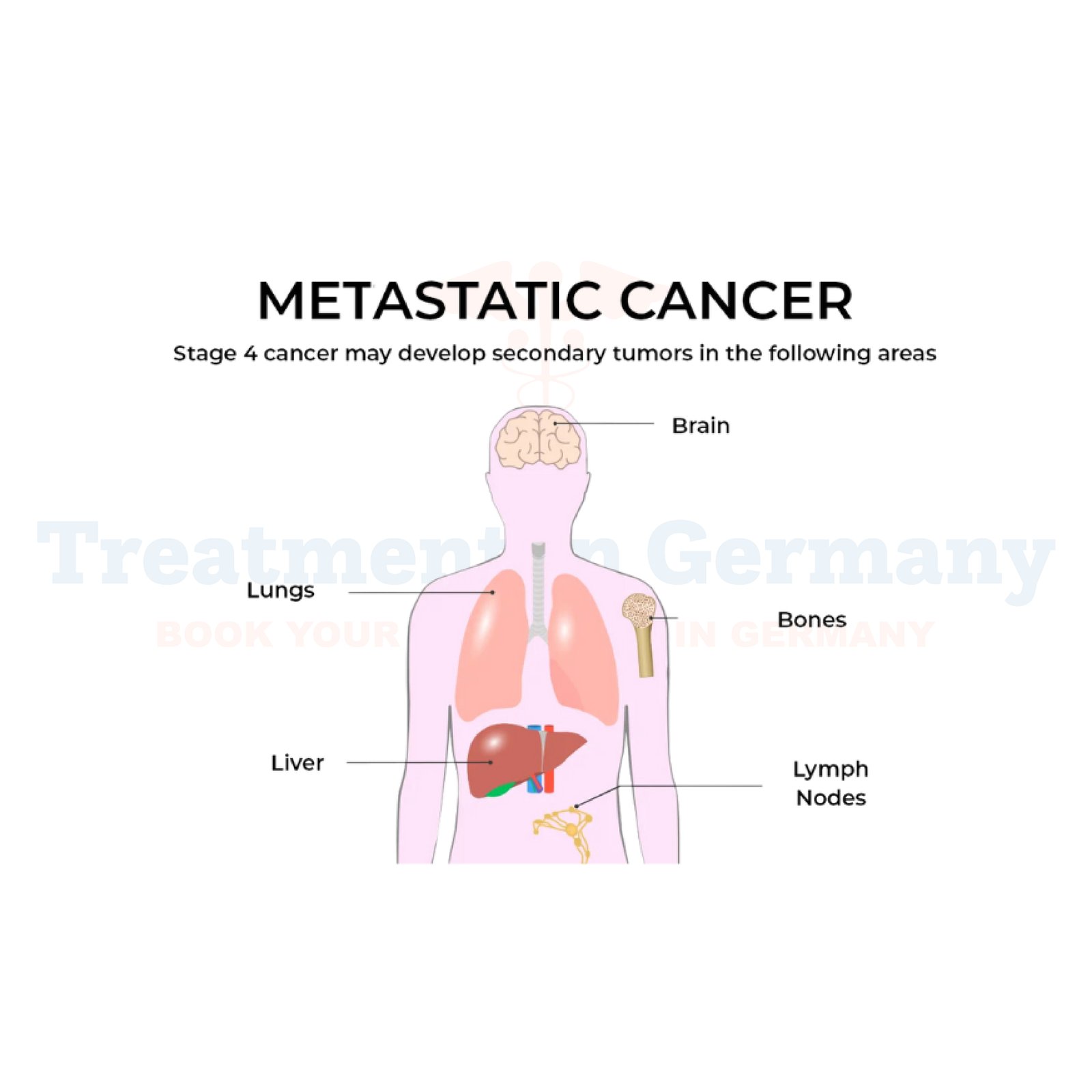Metastatic stage IV cancer or secondary cancer is formed when cancer spreads from its original location to other areas of the body through the blood or lymphatic system. This is one of the most complex types of cancer and, at the same time, offers several opportunities for the application of modern techniques. Germany is now a leading destination to get treated with cancer by employing sophisticated technology along with taking care of the entire personality of the patient.
What is metastasis?
Metastasis is the process whereby cancer cells go to other parts of the body after starting in one place. Breast cancer, lung cancer, and most skin cancers are known to have the ability to metastasize. The process of metastasis typically involves:
Common Cancers and Their Metastatic Patterns
Certain cancers are more likely to metastasize to specific parts of the body:
Symptoms of Metastatic Cancer
Symptoms of metastatic cancer change depending on where the cancer has spread. Some general symptoms include:
Symptoms specific to metastatic sites:
Diagnostic Methods in Germany
Germany’s hospitals use various modern diagnostic methods to detect metastasis and assess its severity. Common diagnostic tools include:
Treatment Options in Germany
Germany is credited with holistic and newer trends in cancer care solutions. The following are the primary therapies for metastatic cancer:
Chemotherapy
Chemotherapy applies drugs that are toxic to cancer cells or halt their development in some way. It may also be employed when the cancer has metastasized to several sites.
Hormone Therapy
This treatment is applied to hormone-sensitive cancers, such as breast cancer or prostate cancer. it reduces the activity of the tumor as it does not allow hormones to be generated.
Immunotherapy
Immunotherapy assists the immune system in recognizing and then getting rid of cancer cells. This approach is especially appealing for cancers with high mutational burdens.
Radiation Therapy
Radiotherapy is applied to make tumors shrink or to relieve some of the symptoms, like bone pain.
Targeted Therapy
Targeted therapies work on some genes or proteins present in cancer cells and are expected to have personalized treatment.
Advanced Research and Innovation in Germany
Germany’s oncology sector is committed to research, focusing on emerging treatments like:
Holistic Patient Care
Besides providing medical treatment, Germany pays attention to patients’ feelings and offers them comprehensive treatment. This includes:
Survival Rates and Prognosis
Marijuana benefits metastatic cancer patients depending on their cancer type and stage. For instance:
Frequently Asked Questions
Why is Germany a top choice for treating metastatic cancer?
Germany provides diagnostic capabilities, the latest treatment options, and a comprehensive strategic model of care delivery.
Is it possible to cure metastatic cancers?
This is because most metastatic cancers cannot be cured however, they can be controlled, and this will enhance life span.
How is metastatic cancer distinguished?
Imaging tests, biopsies, and blood tests by using an MRI or CT scan can be diagnosed.
What symptoms of cancer metastases are present?
General symptoms present, such as tiredness or weight loss, as well as organ-specific symptoms like bone or joint pain or nausea, are a side effect of jaundice.
What treatments are there for metastatic cancer?
There are different types of treatment these include chemotherapy, immunotherapy, hormone therapy, and targeted therapy.
👉 Contact us for further information and receive a complimentary consultation.


.webp)
 (1).webp)

.webp)
 (1).webp)


.webp)
 (1).webp)

.webp)
 (1).webp)
